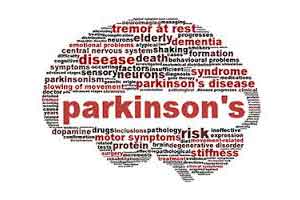- Home
- Medical news & Guidelines
- Anesthesiology
- Cardiology and CTVS
- Critical Care
- Dentistry
- Dermatology
- Diabetes and Endocrinology
- ENT
- Gastroenterology
- Medicine
- Nephrology
- Neurology
- Obstretics-Gynaecology
- Oncology
- Ophthalmology
- Orthopaedics
- Pediatrics-Neonatology
- Psychiatry
- Pulmonology
- Radiology
- Surgery
- Urology
- Laboratory Medicine
- Diet
- Nursing
- Paramedical
- Physiotherapy
- Health news
- Fact Check
- Bone Health Fact Check
- Brain Health Fact Check
- Cancer Related Fact Check
- Child Care Fact Check
- Dental and oral health fact check
- Diabetes and metabolic health fact check
- Diet and Nutrition Fact Check
- Eye and ENT Care Fact Check
- Fitness fact check
- Gut health fact check
- Heart health fact check
- Kidney health fact check
- Medical education fact check
- Men's health fact check
- Respiratory fact check
- Skin and hair care fact check
- Vaccine and Immunization fact check
- Women's health fact check
- AYUSH
- State News
- Andaman and Nicobar Islands
- Andhra Pradesh
- Arunachal Pradesh
- Assam
- Bihar
- Chandigarh
- Chattisgarh
- Dadra and Nagar Haveli
- Daman and Diu
- Delhi
- Goa
- Gujarat
- Haryana
- Himachal Pradesh
- Jammu & Kashmir
- Jharkhand
- Karnataka
- Kerala
- Ladakh
- Lakshadweep
- Madhya Pradesh
- Maharashtra
- Manipur
- Meghalaya
- Mizoram
- Nagaland
- Odisha
- Puducherry
- Punjab
- Rajasthan
- Sikkim
- Tamil Nadu
- Telangana
- Tripura
- Uttar Pradesh
- Uttrakhand
- West Bengal
- Medical Education
- Industry
Hepatitis C infection may increase Parkinson's risk-Research

Beijing: The hepatitis C virus may be associated with an increased risk of developing Parkinson's disease, according to a new study.
Parkinson's disease is considered the second most common degenerative brain disorder after Alzheimer's disease. Hepatitis C is a liver infection caused by a virus.
"Many factors clearly play a role in the development of Parkinson's disease, including environmental factors," said study author Chia-Hung Kao from China Medical University in Taichung, Taiwan.
"This nation-wide study, using the National Health Insurance Research Database of Taiwan, suggests that hepatitis caused specifically by the hepatitis C virus may increase the risk of developing the disease," said Kao.
The World Health Organisation (WHO) estimates that 130 to 150 million people have hepatitis C worldwide. While hepatitis C can lead to serious illness, many people have few symptoms and do not realise they have the virus, especially at first.
The virus is transmitted through sharing needles, needle stick injuries in health care providers and passed on at birth from infected mothers.
In Taiwan during the time of the study, blood transfusions were the most common cause of the virus. In the US, all donated blood has been screened for the virus since 1992.
The study involved 49,967 people with hepatitis and 199,868 people without hepatitis. Participants with hepatitis were placed into three groups: those infected with the hepatitis B virus (71 per cent), those with hepatitis C (21 per cent), and those who had both viruses (8 per cent).
The participants were followed for an average of 12 years to see who developed Parkinson's disease. Of those with hepatitis, 270 developed Parkinson's disease, including 120 people with hepatitis C.
Among those who did not have hepatitis, 1,060 developed Parkinson's disease.
Once researchers controlled for factors such as age, sex, diabetes and cirrhosis, they found that people with hepatitis C were nearly 30 per cent more likely to develop Parkinson's disease than the people who did not have hepatitis.
People with hepatitis B and those with both viruses were not more or less likely to develop Parkinson's than those who did not have hepatitis.
Parkinson's disease is considered the second most common degenerative brain disorder after Alzheimer's disease. Hepatitis C is a liver infection caused by a virus.
"Many factors clearly play a role in the development of Parkinson's disease, including environmental factors," said study author Chia-Hung Kao from China Medical University in Taichung, Taiwan.
"This nation-wide study, using the National Health Insurance Research Database of Taiwan, suggests that hepatitis caused specifically by the hepatitis C virus may increase the risk of developing the disease," said Kao.
The World Health Organisation (WHO) estimates that 130 to 150 million people have hepatitis C worldwide. While hepatitis C can lead to serious illness, many people have few symptoms and do not realise they have the virus, especially at first.
The virus is transmitted through sharing needles, needle stick injuries in health care providers and passed on at birth from infected mothers.
In Taiwan during the time of the study, blood transfusions were the most common cause of the virus. In the US, all donated blood has been screened for the virus since 1992.
The study involved 49,967 people with hepatitis and 199,868 people without hepatitis. Participants with hepatitis were placed into three groups: those infected with the hepatitis B virus (71 per cent), those with hepatitis C (21 per cent), and those who had both viruses (8 per cent).
The participants were followed for an average of 12 years to see who developed Parkinson's disease. Of those with hepatitis, 270 developed Parkinson's disease, including 120 people with hepatitis C.
Among those who did not have hepatitis, 1,060 developed Parkinson's disease.
Once researchers controlled for factors such as age, sex, diabetes and cirrhosis, they found that people with hepatitis C were nearly 30 per cent more likely to develop Parkinson's disease than the people who did not have hepatitis.
People with hepatitis B and those with both viruses were not more or less likely to develop Parkinson's than those who did not have hepatitis.
Next Story


